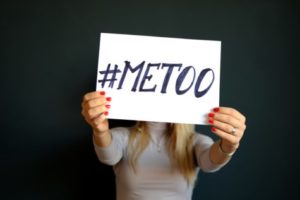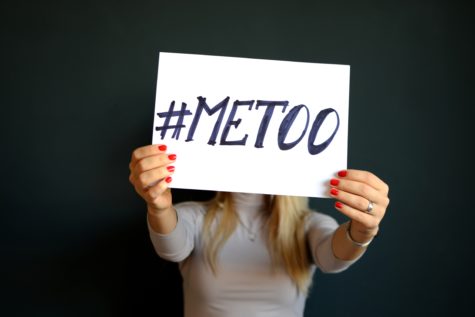WASHINGTON — There may be no stronger campaign against sexual harassment and inappropriate conduct than the #MeToo movement that’s gripped America. But have companies strengthened policies and procedures to prevent scandalous behavior from occurring in lieu of the movement’s rise? A new study, perhaps surprisingly, finds few are ramping up their efforts.
A recent survey by the American Psychological Association (APA) found that increased efforts to prevent sexual harassment in the workplace lead to better business outcomes. Yet the same survey found that most employees feel their employers aren’t doing enough to address sexual harassment concerns.

Since the fall of 2017, the increased focus on sexual harassment in the workplace from #MeToo movement fallout has led to several high-profile resignations, terminations, lawsuits, and heightened awareness of misconduct in the workplace. Big names being torn down because of harassment allegations and other deviant behavior has increased national conversations about inappropriate behavior in professional settings, yet APA researchers found that less than a third (32%) of their sample of American workers said their employers were taking new steps to prevent harassment in the workplace.
According to employees who identified new initiatives put forth by their employers, the most common action taken was reminding employees of existing sexual harassment training and company policies.
The online study, conducted by the APA’s Center for Organizational Excellence, collected responses from 1,512 American adults working full-time, part-time, or who were self-employed.
“The #MeToo movement has given business leaders an opportunity to finally take real action addressing a complex problem that has been pervasive for generations,” says David W. Ballard, the Center for Organizational Excellence’s executive director, in a press release. “Our survey — as well as anecdotal reports — shows that too few employers are making comprehensive efforts that can have significant impact.”
Only 10% of workers surveyed said their employer has added more training and resources addressing this issue since late 2017. Only 8% said their company instituted a more stringent policy regarding sexual harassment, and just 7% reported their employer held a meeting or town hall to discuss these issues.
“Avoiding the issue is bad for employee well-being and business, but so, too, is a narrow, compliance-based approach,” says Ballard. “We know from psychological science that relying solely on mandated training designed primarily to limit the organization’s legal liability is unlikely to be effective.”
Better policies can be beneficial to companies beyond just lessening the chances of inappropriate behavior happening. Survey participants whose employers had taken stronger steps to prevent misconduct felt greater job satisfaction than (86 percent vs. 60 percent) versus participants whose workplaces hadn’t. Similarly, workers acknowledged a higher motivation to do their best at work (89 percent vs. 64 percent) and were more likely to say they’d recommend their organization as a good place to work (79 percent vs. 51 percent).
“Leaders in a psychologically healthy workplace model civility, respect, fairness and trust,” says Ballard. “In an organizational culture where every employee feels safe, supported and included, people can be their best, and that’s good for people and profits.”
The full study was published online on the American Psychological Association website.

Because they’d also have to tell female employees to dress modestly and be polite, which would result in tantrums and lawsuits about “oppression” and “sexism”.